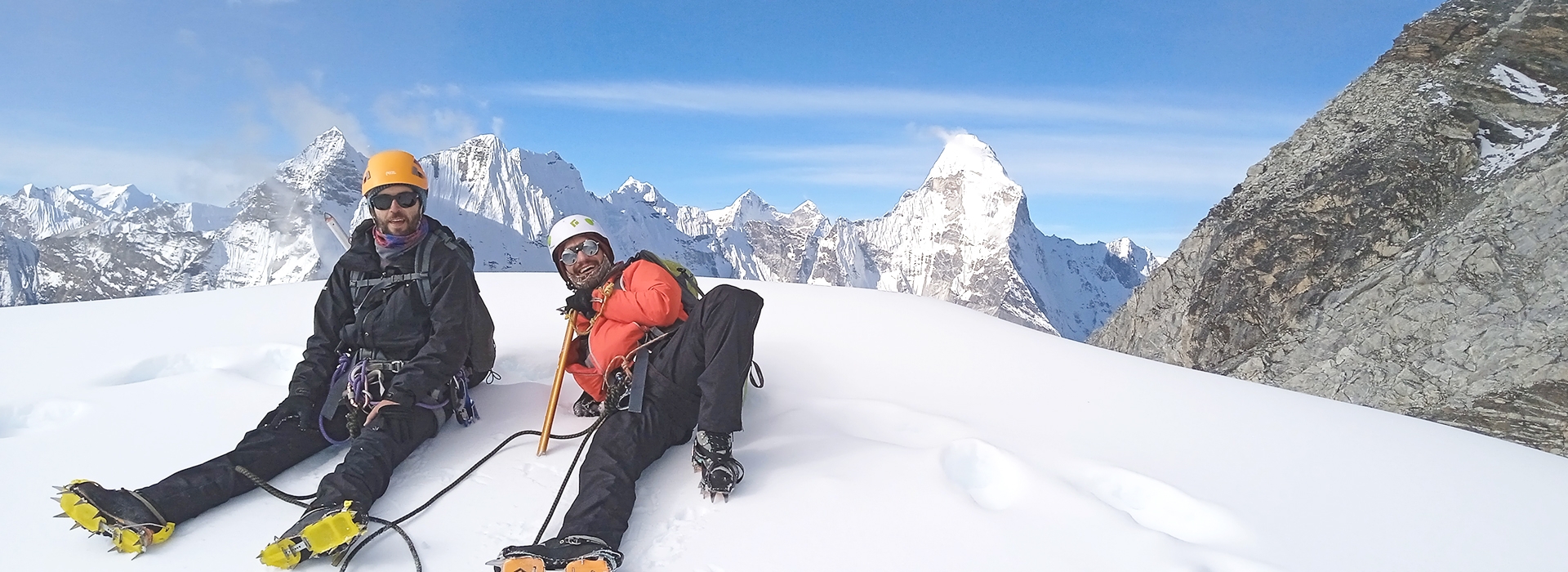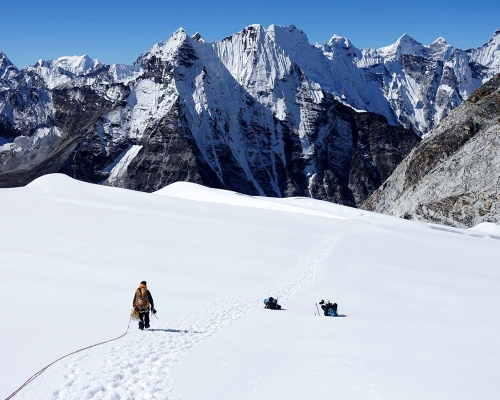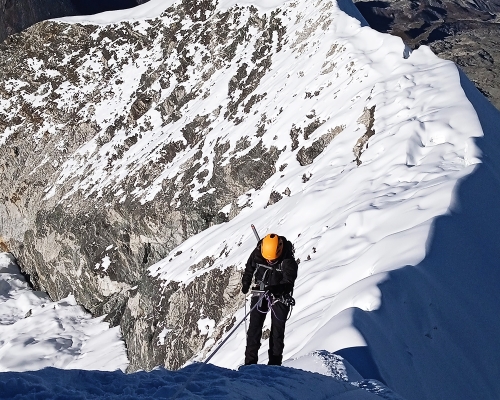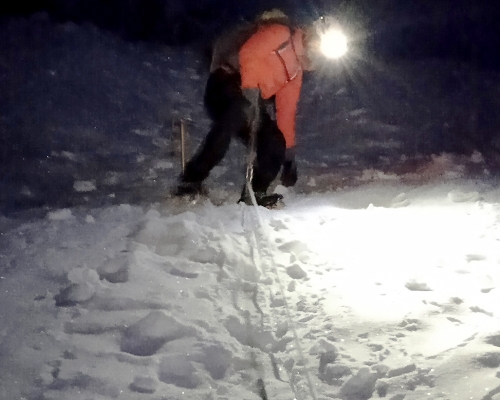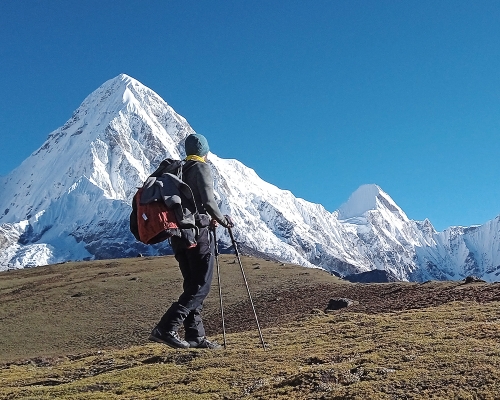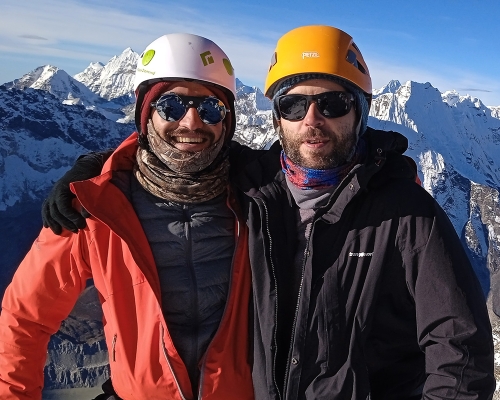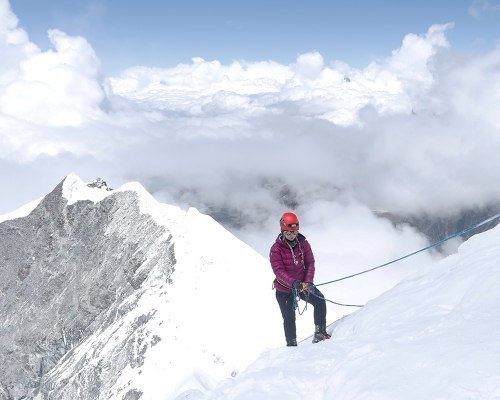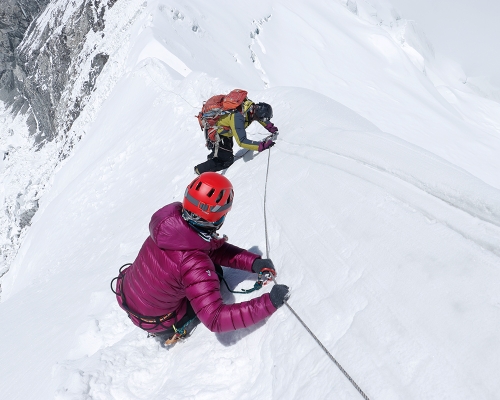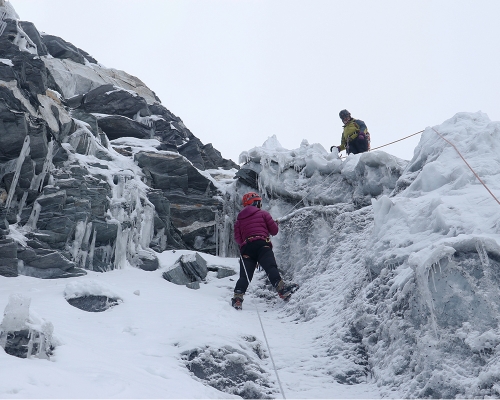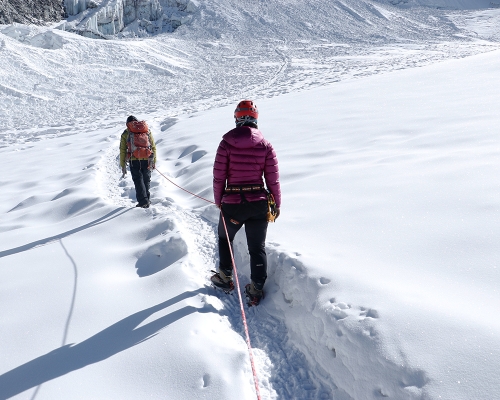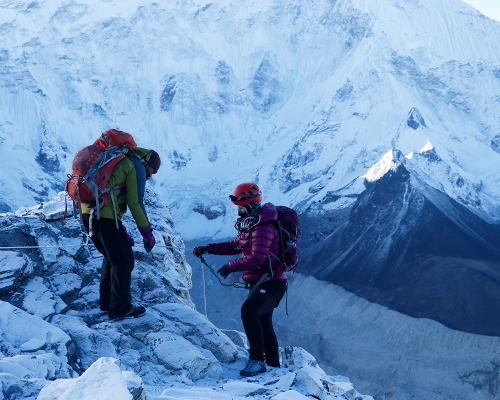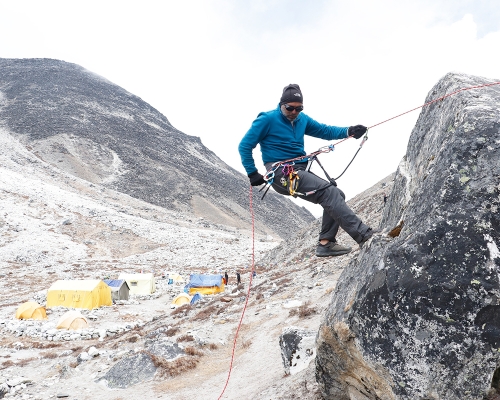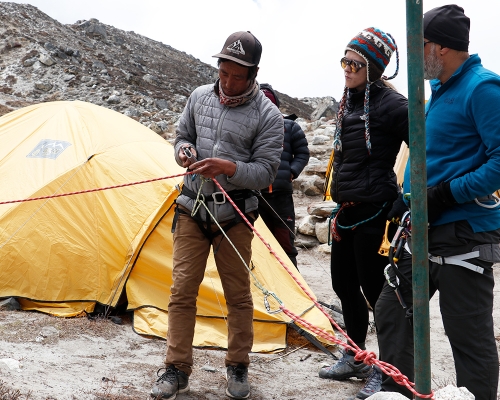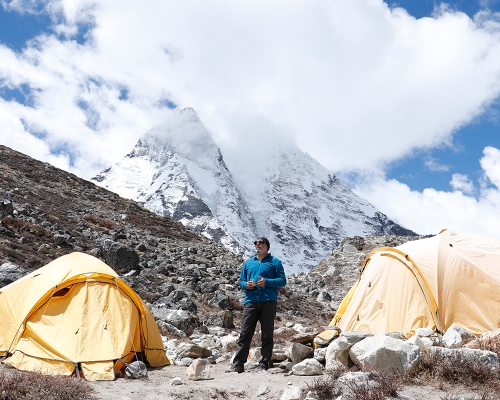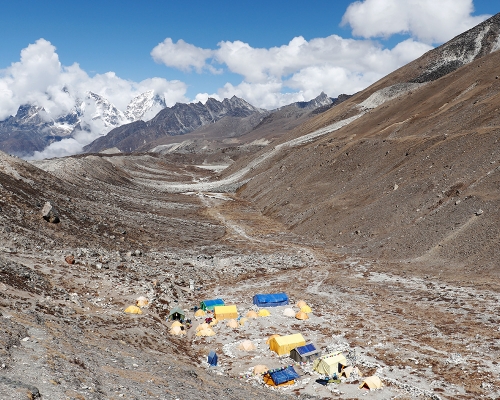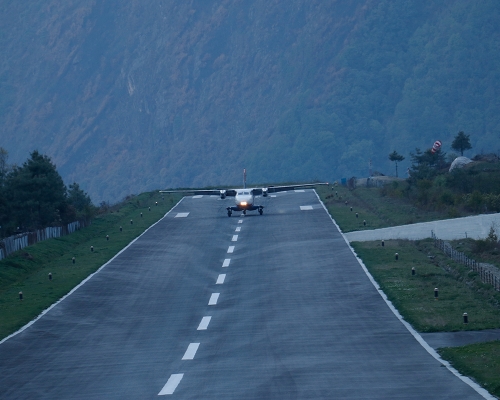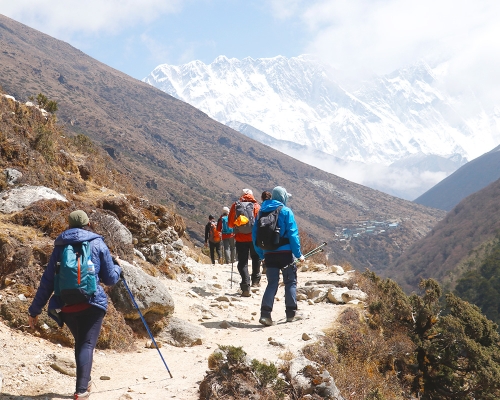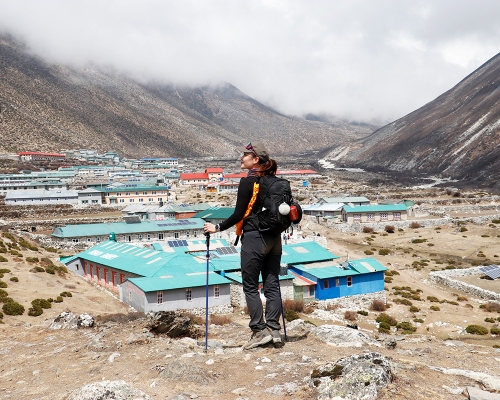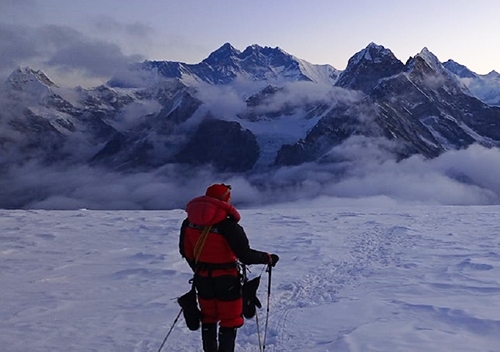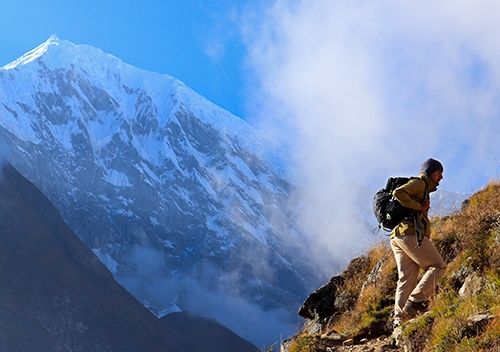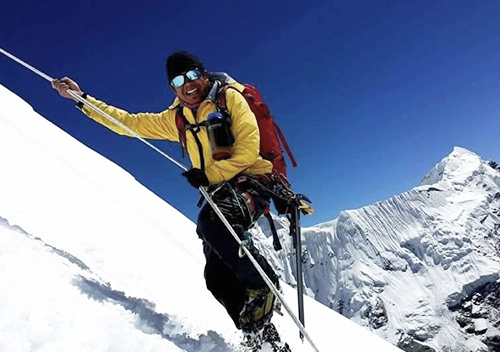Island Peak Climbing with Everest Base Camp Trek Overview
Island Peak Climbing with Everest Base Camp Trek in Nepal is one of the most fascinating lifetime adventures, which offers complete adventure to all adventure seekers and mountain hikers across the world. Island Peak (6,160 m), also known as Imja Tse, is similar to 'an island in the seas of ice'. However, it is a rugged peak for climbing, and the Island Peak climb is one of the thrilling and paradise peaks, having fantastic scenery of majestic mountains nearby, and so forth and foremost, preparing oneself for the summit of the higher mountains.
Located in the Khumbu region, Island Peak (6,165 m), also popularly known as Imja Tse Peak, is one of Nepal's most famous and demanded peaks for climbing, especially in the Everest Region. Island Peak, the name in itself, is self-explanatory. The peak looks similar to the Island of Ice. This is, therefore, why the peak initially was known as Imja Peak, and later on, was given by British National Eric Earle Shipton as Island Peak, as this peak looked like 'an island in the seas of ice' As Shipton depicted the sight as being like an island, as he saw from Dingboche, the site today is no different than it was a long time back.
Official data recorded between 2006 and 2010 shows how famous the Island Peak is for climbing. Within these four years, as many as 12,000 people had obtained permission. Comparatively, Island Peak in the Himalayas is technically the most challenging peak to have a summit, and therefore, despite obtaining consent, many people could not ascend to the top of the peak.
Island Peak is a part of Mt. Lhotse, also known as Lhotse Shar as well as Mt. Nuptse; you ascend alongside snow-filled rocky and sloppy hills, beating the strong winds and slippery snow-filled trails, boulders, and thick fog as you climb on the top of the Island Peak, you will feel paradise of snow, fantastic scenery of Lhotse Shar, raised stiff tall summit to the north, and the giant Mt. Makalu to the west as well as the Ama Dablam, Mt. Baruntse and Amphu Lapcha to the south-west. As said above, Island Peak is undoubtedly a paradise for the utmost adventure seekers who are willing to see and capture dazzling views of the dramatic mountains, incredible scenery, numerous glaciers, glacial lakes, and more. Island Peak was said to have first been climbed by the British team in 1953 in preparation for climbing Mt. Everest.
It is not that you will only see the mountain views and incredible landscapes, you will also have an opportunity to delve into the unique culture, rituals, lifestyles, and at the same time, numerous flora and fauna. More importantly, if you wish to, you can sojourn in the beautiful village of the legendary Sherpa, enjoy local dishes and delicacies, and have an excursion around the ancient Buddhist monastery, Mani, Chhorten. All these features are explicit enough to explain why the island's peak climbing trip is unique in Nepal.
After a UNESCO World Heritage sightseeing tour in and around the Kathmandu valley, you will begin the Everest Base Camp and Island Peak climbing trip with a short flight from Kathmandu to Lukla. Then you begin real trekking through Phakding, you will reach Namche Bazaar, where you will stop for one day to acclimatize. At Namche, you will roam around the village of legendary Sherpa, enjoy their local dishes and delicacies, and explore the Buddhist monastery. You will continue trekking to Tengboche Monastery, Pangbche Village, Dingboche, and Lobuche the next day. You will reach Gorakshep, Everest Base Camp, and retrace down to Kala Patthar, Lobuche, Chhukung, and finally reach Island Peak Base Camp; after ascending to the top of the peak, you will retrace down to Namche Bazaar, finally to Lukla, and then fly back to Kathmandu.
Highlights of Island Peak Climbing & Everest Base Camp Trek
- Climbing Island Peak and mountaineering in the incredible Khumbu Region
- Sunrise from the top of Island Peak
- Beautiful views of Everest, Lhotse, Makalu, Cho Oyu, Nuptse, Ama Dablam, Island Peak, and the Khumbu Icefall
- Sunrise and sunset from the top of the Kalapatthar
- Experience the Sherpa village in Namche, Khumjung, Pangboche, and Phakding
- Blessing from monks and experience the meditation at Tengboche Monastery
- Landing and take-off from the world's most dangerous airport in Lukla
Is This Trip Right for You?
Everest Base Camp and Island Peak Climbing is considered moderately difficult, making it an ideal option for those looking for a challenging yet manageable high-altitude mountaineering experience. Many view Island Peak as a training peak for beginners; however, it does require a reasonable level of fitness, some basic mountaineering skills, and some experience with mountaineering equipment. You should know how to use a climbing harness, ice axe, and ropes. Island Peak is often considered the next step of climbing for individuals who have completed high-altitude treks and want a challenging but achievable first climb.
How To Prepare Yourself for the Island Peak Climbing with the Everest Base Camp Trek?
Make sure you start training well in advance for the Island Peak climb. You will be out for several days at high elevations with a long (10–12 hour) summit push. Island Peak elevation reaches 6,189 meters (20,305 feet), therefore, you need to be in good shape. Start preparing at least 3–4 months before you head to the trail.
Focus on four important factors: Fitness Level, Mental Preparation, Technical Skills, and Proper Equipment. With a loaded pack, you can develop stamina with running, cycling, swimming, stair climbing, and hiking. You can expect to be hiking for 5–6 hours a day on steep, uneven terrain in a remote setting.
Be sure to pack smartly. You’ll be out for about 18 days in challenging and remote conditions, so pack everything you need. Pay attention to detail, don't forget your headlamp, sun protection, sunglasses, ORS (oral rehydration salts), medications, etc.
Why Choose Footprint Adventure for Everest Base Camp and Island Peak Climbing for 2025/2026?
At Footprint Adventure, we prioritize safety, preparation, and personalized service. Our Island Peak and Everest Base Camp trips are designed to allow adequate acclimatization and support. Our skilled guides, dependable team, and 24/7 communication ensure a smooth and enjoyable journey. We have built a community of happy trekkers with many returning to travel with us. With great accommodation, quality planning, and genuine concern for every traveler, we are focused on providing you with a safe and memorable Himalayan adventure.

